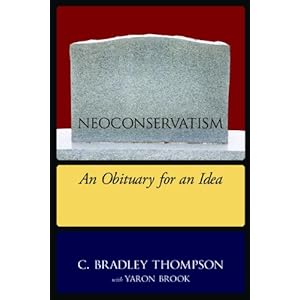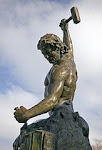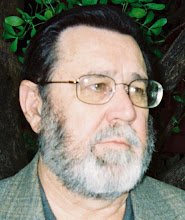"A democracy cannot exist as a permanent form of government. It can only exist until the voters discover that they can vote themselves largess from the public treasury. From that moment on, the majority always votes for the candidates promising the most benefits from the public treasury with the result that a democracy always collapses over loose fiscal policy, always followed by a dictatorship. The average age of the world's greatest civilizations has been 200 years."
— Alexis de Tocqueville
Monday, April 25, 2011
Sunday, April 17, 2011
Atlas Shrugged, Part I . . . Thanks!
 Great fun! Engaging! The plot-theme of individuals creating the economy in conflict with stifling government collectivism is well presented. New types of heroes and villains. Questioning cultural values. Lingering mysteries.
Great fun! Engaging! The plot-theme of individuals creating the economy in conflict with stifling government collectivism is well presented. New types of heroes and villains. Questioning cultural values. Lingering mysteries. America needs this movie. Thanks go to the dedication of the producers, and to the Atlas Society's help, in bringing this story to the screen true to Ayn Rand's values.
A couple of college kids are now inspired to read the novel, having found the movie entertaining and presenting "issues we have to deal with." Even though it is "not the kind of movie we normally go to see."
Some superficial readers of the novel (of which there are millions) said the movie's "fast pace and streamlining helped them see the ideas" within the adventure. Sparking their interest in rereading with a new focus.
The movie was even more enjoyable the second time, as I picked up on more elements. Anyone who loves the novel can subjectively nitpick aspects of the focus, the dialogue, or the acting, as mutually conflicting reviewers have. Helpful criticism is useful, but nitpicking is all anyone can reasonably do, as no serious criticism is justified.
The experience is enhanced by familiarity with the novel, but stands well on its own. Most movie goers will have encountered some discussion of Ayn Rand and the novel from today's culture: TV news commentators, newspaper articles, conservative radio, congressmen quoting, Tea Party popularizing, school readings, word of mouth, etc. Even the negative movie reviews generally spread word of the story and conflict.
So, this movie can be expected to be an exciting focal point of new and deeper introductions to Ayn Rand's works, dramatizing the capitalist-socialist conflict and the morality of rational self-interest.
Onward to Part II!
Tuesday, April 12, 2011
Mountain Top Coal Mining, West Virginia
Shows large scale productivity by human standards is small scale for the Appalachians. Even if there was no recovery effort. Click the years to see the progress, and the large view button at right to get a more revealing view. NASA http://earthobservatory.nasa.gov/Features/WorldOfChange/hobet.php?src=eoa-ann
Thursday, April 7, 2011
Neocons: Rejecting the Declaration of Independence

Neoconservatism: An Obituary for an Idea, by C. Bradley Thompson, with Yaron Brook, is a fascinating exposition of the essence, history, and philosophy of the movement or idea. (And I'm only a third into it.)
What may be characterized as neoconservatism is the purposefully nebulous intellectual movement which has largely consumed the conservative intelligentsia. So-called compassionate conservatism. Socialism in capitalist clothing. A pragmatic approach to the welfare state. Capitalism with a heart. Lip-service capitalism. Socialism without totalitarianism. Or perhaps, “A new spectre is haunting the world?” Neoconservatism requires no formal conspiracy, only general acceptance of a philosophic approach.
A philosophic approach counter to the Enlightenment which gave birth to the founding fathers and America. Rejection of the idea that all men are capable of reason and self-improvement. Rejection of reason and principle in favor of emotionalism and “prudence.” Neocons, while inconsistent, effectively reject the Declaration of Independence. Not in an implied, confused way, but explicitly. Men do not have natural rights; such as, life, liberty, or pursuit of happiness. The purpose of government is not to protect individual rights, but to ensure that men recognize the duties of serving the “public good.” Only then will they be happy.
Still, neocons recognize that forced socialism fails, producing poverty, misery, slaughter, and oppression. Thus, some measure of capitalism must be preserved to generate the wealth needed for actual public good, for redistribution by the welfare state.
But capitalism is founded on principles of self-interest and individual rights. So, neocons seek pragmatic compromises, some fantasy mixture of limited freedoms and regulations, to be guided by an elite in the “art of politics” toward the “greater good.” (As both Dante and Ayn Rand have observed, compromisers, betrayers of principle, belong to the lowest depths of hell.)
The goal of government, of the elite, of these real life versions of Ayn Rand's fictional Ellsworth Toohey, is to promote a modern version of Plato's noble lie, founded in unquestioned, traditionally altruistic, religious beliefs – a unifying “secular religion.” All the while, politically, legislatively nudging and guiding the culture in properly collective directions.
The fact that neoconservative thought, by its nature, cannot be a unified, organized movement serves to nullify its goals, but not its cultural, political damage – as promoters engage in intellectually confused and conflicting policy urgings and moral critiques – picked up by the journalistic and entertainment media and universities.
Neocons argue that principles of individual freedom lead to false virtues of self-interest, degenerating into hedonism (mindless gratification, greed, and entertainment). Thus, they attack a straw man, following the tradition of religious and altruistic thinkers. Men who can see no morality in reason or the “self,” but only empty degradation. (Themselves, the elite, the transcendentally enlightened, excepted.)
Ironically, the founders of this philosophic movement claim an answer to Nietzsche and Heidegger, but effectively only politicize nihilism and existentialism. More ironically, the neocons formulated their views at the time Ayn Rand was providing the antidote to their straw man: a validation of reason and moral values, which must be grounded in man's individual nature and self growth. Their evasion of Rand is grounded in their evasion of reason as a virtue.
The “godfather” of neoconservatism, Irving Kristol, enjoyed a cultural boost, and the neocons have continued to denounce Rand. Rand's Objectivism is now gaining wider distribution and supporters. Both Rand and Kristol are dead, but the cultural battle is well joined. Hopefully, consistent Objectivism will write the obituary of inconsistent, pragmatic neoconservatism.
Other fascinating works in this vain, written for the general reader and tracing the history and philosophic developments which are confusing our modern culture, are Peikoff's “Ominous Parallels” and Hicks' “Explaining Postmodernism: Skepticism and Socialism from Rousseau to Foucault.” All highly recommended.
Monday, April 4, 2011
Doomed Society (Creative Destruction?)
It appears that this society is indeed doomed, but perhaps there is still time for a new, revised society to emerge, before the old is completely consumed spiritually and physically by its contradictions?
"When you see that trading is done, not by consent, but by compulsion – when you see that in order to produce, you need to obtain permission from men who produce nothing – when you see that money is flowing to those who deal, not in goods, but in favors – when you see that men get richer by graft and by pull than by work, and your laws don't protect you against them, but protect them against you – when you see corruption being rewarded and honesty becoming a self-sacrifice – you may know that your society is doomed." --Ayn Rand
Regulatory restrictions and licensing requirements from every level of government as far as the eye can see. Mandated schooling, health care, social security, union participation, retirement age, minimum wage, etc. Production prevented by restricting oil drilling and refinery operations, nuclear power, land use permissions, unionization requirements, environmental foolishness, etc. Subsidies and tax incentives for favored crops and so-called green technology, financial bailouts for some, wavers from Obamacare burdens for favored corporations and unions, exemptions for congressmen, etc. Police graft institutionalized through forfeiture laws and victimless crimes.
The hope: Modern communication is providing knowledge of events real time and allowing widespread coordination among like minded people at the historic moment when Ayn Rand's works are becoming part of the mainstream culture, giving capitalism a moral foundation for the first time.
"When you see that trading is done, not by consent, but by compulsion – when you see that in order to produce, you need to obtain permission from men who produce nothing – when you see that money is flowing to those who deal, not in goods, but in favors – when you see that men get richer by graft and by pull than by work, and your laws don't protect you against them, but protect them against you – when you see corruption being rewarded and honesty becoming a self-sacrifice – you may know that your society is doomed." --Ayn Rand
Regulatory restrictions and licensing requirements from every level of government as far as the eye can see. Mandated schooling, health care, social security, union participation, retirement age, minimum wage, etc. Production prevented by restricting oil drilling and refinery operations, nuclear power, land use permissions, unionization requirements, environmental foolishness, etc. Subsidies and tax incentives for favored crops and so-called green technology, financial bailouts for some, wavers from Obamacare burdens for favored corporations and unions, exemptions for congressmen, etc. Police graft institutionalized through forfeiture laws and victimless crimes.
The hope: Modern communication is providing knowledge of events real time and allowing widespread coordination among like minded people at the historic moment when Ayn Rand's works are becoming part of the mainstream culture, giving capitalism a moral foundation for the first time.
Subscribe to:
Posts (Atom)


